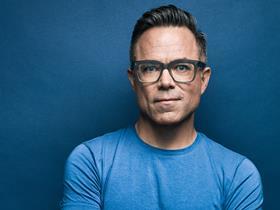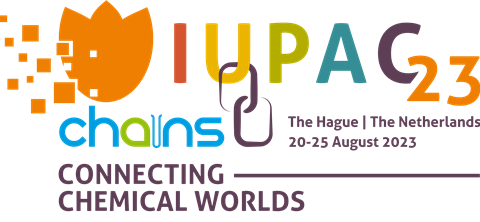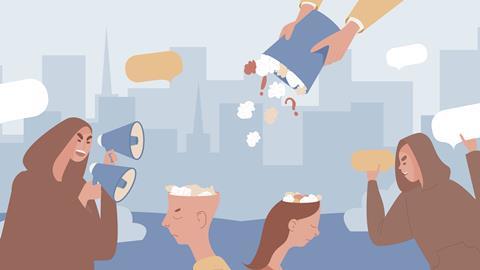Many distinguished researchers will take the stage during IUPAC | CHAINS 2023 and inspire us with their research into all facets of chemistry. One of them will however not take us into the depts of complicated molecules or activation energies. Health and Science policy researcher Timothy Caulfield from the University of Alberta, Canada, will take us through his work on a whole other subject that we chemists still encounter almost daily: scientific misinformation in the public sphere.
For a few decades now, Caulfield has been looking into how health science is represented in the public debate, and how misinformation plays a role in this interaction. During this time, he also developed into an enthusiastic science communicator. He has written several popular science books on health science and hosted and co-produced the documentary TV show A User’s Guide to Cheating Death. Caulfield: ‘I think it is really important to engage the public and let them know what science is about. But sometimes it can also be a minefield.’ C2W International spoke to him and got a preview of what to expect during his IUPAC | CHAINS 2023 lecture.
Why did you choose to study the interaction between health sciences and the public?
‘At the start of my career I discovered that often there is not great scientific evidence to support policy decisions. This made me look into what kind of evidence is used in policy making, and how science is represented, and I was fascinated. A lot of factors play a role in the representation of science, especially health sciences. Also, things you wouldn’t necessarily expect, like pop culture and celebrities.
It is a really interesting field, which came even more into focus when the pandemic hit. Honestly the spreading of misinformation already started to become more important and influential in the last ten years or so, but the pandemic really accelerated the problem. I am lucky that I can work together with various researchers from other fields to look at these problems from a range of perspectives.’

Do you also work with chemists?
‘Yes, because many of the issues in health science misinformation are based on a misunderstanding of chemistry. Chemophobia and an outsized concern of toxins play a major part in my work, and I have worked together with several chemists to look into this and try to debunk some of the misinformation.’
Will you also do some debunking during IUPAC | CHAINS 2023?
‘My main aim is to show the audience how misinformation became such a great challenge, and what forces drive this misinformation era. And I also want to give you all some tools to push back against the noise. It may not feel like it, but debunking really works! We are learning more and more about how to fight misinformation and more resources are being put towards fighting this and that is good news. I am an optimist, and I think we will be able to fight this by engaging the public and teach them how science works and use strategies like prebunking [spotting false claims, ed.] and critical thinking.’
You already engage with the public quite a lot, why did you choose to also become a science communicator?
‘For me it is really a lot of fun. I love it, I love to write and work together with creative people and find new ways to bring the scientific knowledge to the people. Luckily, more and more people and institutions agree with me that it is of great importance to engage the public in a respectful and meaningful way.’
For some scientists it can also be scary to put themselves out there. Do you have advice for those who want to try science communication?
‘I understand that it is not for everyone, but if you feel like you want to engage in science communication start with something small. Pick a very narrow subject that you are passionate about and start by talking or writing about that. Those accounts are often the most powerful. A great example of this is the Twitter account Justsaysinmice, which literally just points out when the media doesn’t specify if a study is done in mice or in humans – which of course can make a huge difference.
It can be nasty out there, especially if you deal with subjects that people know and have an opinion about. I, for instance, get a lot of hate-mail. So, if you don’t want to take the leap yourself, at least be supportive of colleagues that do try. Institutions and funders can also play an important role in giving space and encouragement for those who try. And in the end, you should just have fun. There is a fantastic science communication community out there with energetic, diverse voices, and it is great to be a part of this.’
Are you excited about coming to The Hague?
‘Yes, I really look forward to it! It is great for me to talk to an audience that is on the same page as me, and that understands how important science is. I also love coming to the Netherlands, it is a beautiful country. And the best thing is that I will also get the chance to watch Max Verstappen win the Dutch Grand Prix the weekend after the conference. I am a huge Max fan, so I can’t wait!’














Nog geen opmerkingen